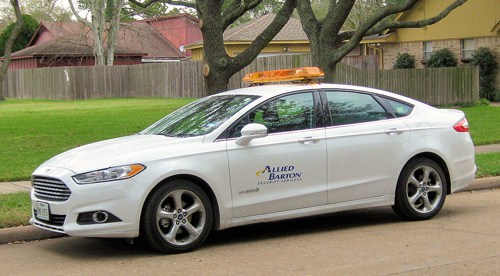|
By Tate Fegley
Many people recoil from the idea of policing being done by private, for-profit enterprise. They imagine that such companies, in their attempt to maximize profit, would be even more abusive than government police. But what most fail to realize is that private ‘police’ already exist in America and to a large extent: there are an estimated 3 persons employed in private security for every public cop. These include a wide range of roles and skills, from the night watchman at a construction site to sophisticated cyber security experts ensuring that financial transactions are secure. Private policing isn’t some fantasy, and it isn’t just a luxury enjoyed by the rich: every time you enter a shopping mall, go to a department store, visit an amusement park, enjoy a live professional sporting event, or use PayPal, you are being protected by people trying to maximize profit. In a free market, where transactions are voluntary, customers need to be pleased in order for companies to survive. People generally prefer to not be groped when they travel, choked for selling cigarettes, or have their homes raided by SWAT teams in the middle of the night for possessing a plant. It is only government police that engage in these types of activities because when a police agency’s source of revenue is involuntary and divorced from the quality of service it provides, abuses are more likely to occur. Perhaps equally as important is that private police do not enjoy the legal privileges that government police do, but are on equal legal standing with the rest of us. They want to avoid lawsuits for injury because they, not the taxpayer, will be liable. Unlike government police, they do not enjoy the benefit of a friendly prosecutor who will do all that is politically feasible to avoid getting them indicted. Private police do not have union contracts that keep them from being interrogated after a shooting, or allow them to be reinstated after being fired for misconduct, as public police do. Indeed, it is quite amazing that anyone believes government police, who investigate themselves when there are citizen complaints against them, will hold themselves accountable. Despite the far greater number of private police, we rarely hear about them shooting anyone. And this is not because they have a less dangerous job. Rather, private police are killed more often than government police, and a greater proportion of those deaths are the result of violence, rather than accidents. This is only to be expected when one is in the business of protecting persons and private property and must do so in a satisfactory way or be fired. Government police hold no such obligation: the US Supreme Court opined inWarren v. District of Columbia (1981) that police owe no specific duty to protect citizens. Thus, it should not be hard to imagine how private police would be far more accountable, and far less prone to violence, than government police. All one has to do is look around. This article was originally published at The Mises Institute. Comments are closed.
|
Archives
July 2024
|



 RSS Feed
RSS Feed



